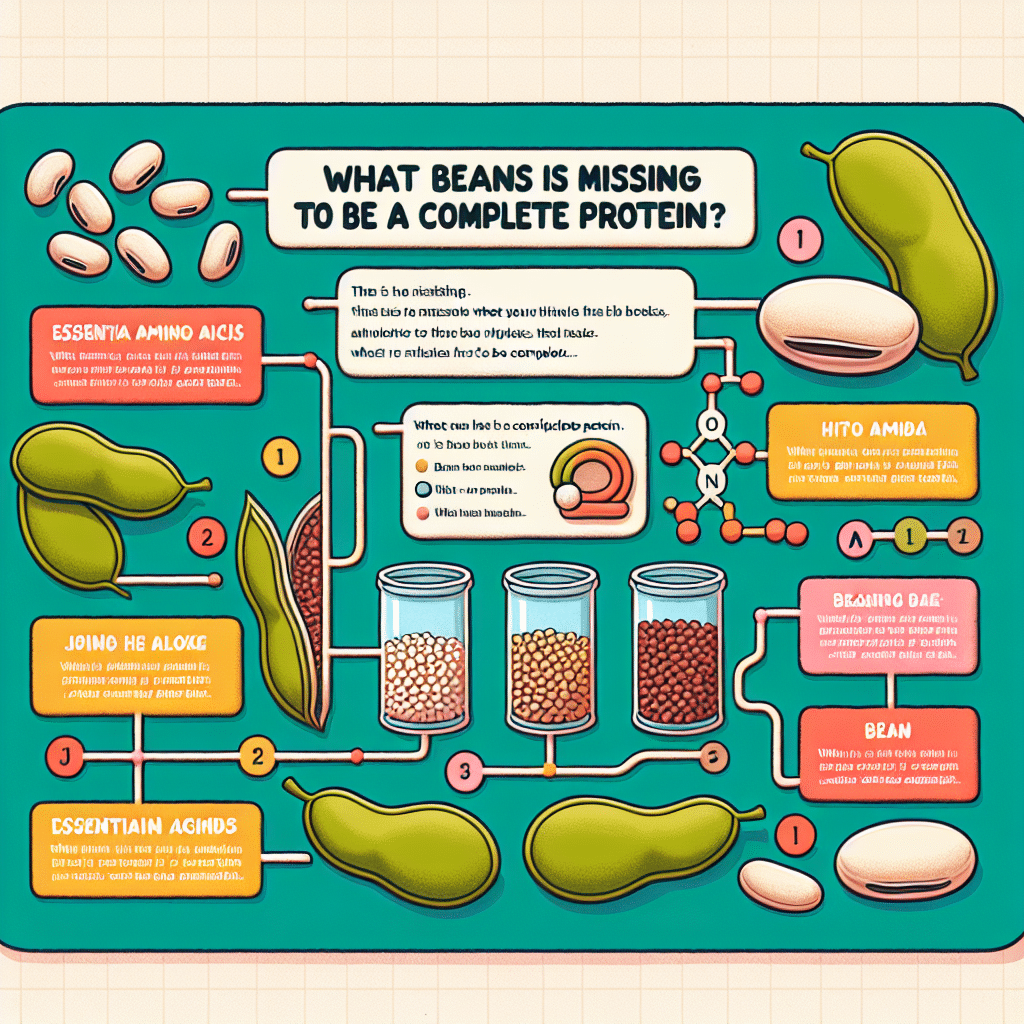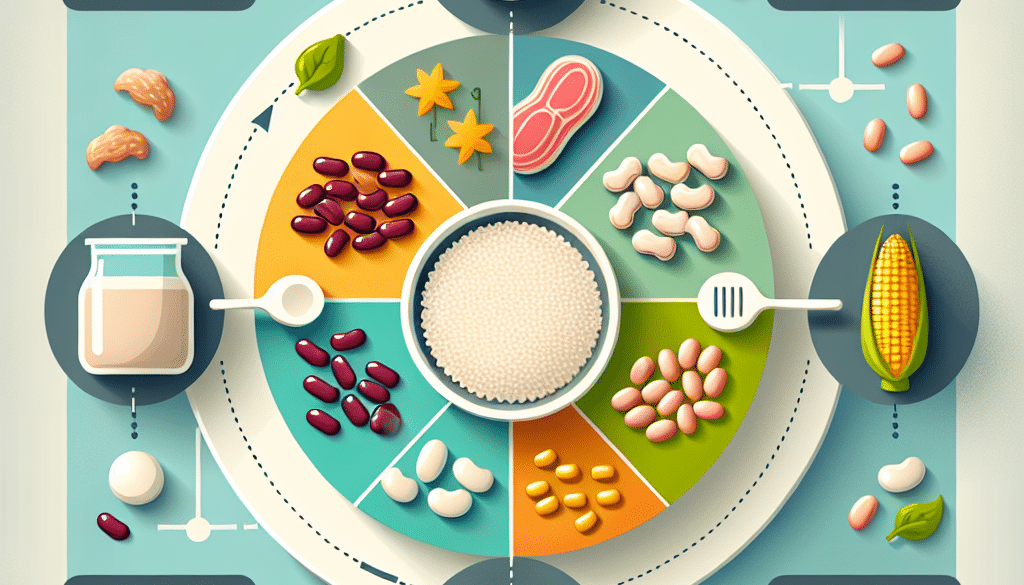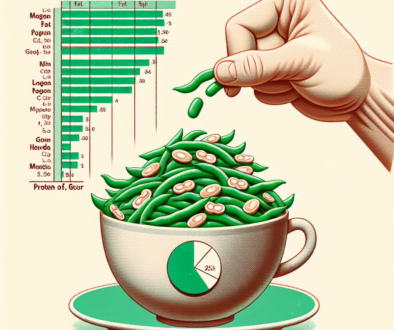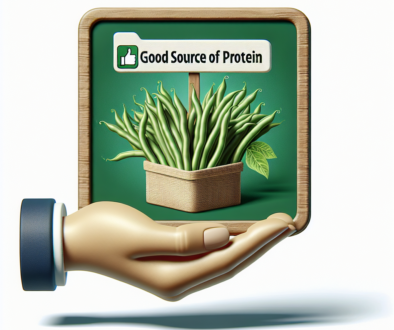What Are Beans Missing To Be A Complete Protein?
-
Table of Contents
- Complete Proteins and Beans: What’s Missing?
- Understanding Amino Acids and Protein Quality
- The Amino Acid Profile of Beans
- Complementing Beans to Form a Complete Protein
- Case Studies and Examples
- Statistics on Bean Consumption and Protein Intake
- Conclusion: The Importance of a Balanced Diet
- ETprotein: Your Source for High-Quality Protein Products
Complete Proteins and Beans: What’s Missing?

Proteins are essential macronutrients that play a critical role in building, maintaining, and repairing tissues in the body. A complete protein is one that contains all nine essential amino acids that the human body cannot synthesize on its own. These amino acids must be obtained through diet. Beans are a staple in many diets around the world and are known for their high protein content. However, they are not considered a complete protein. This article explores what beans are missing to be classified as a complete protein and how to complement their amino acid profile.
Understanding Amino Acids and Protein Quality
Proteins are made up of amino acids, which are the building blocks for many structures and functions in the body. There are 20 different amino acids, and nine of these are essential. The quality of a protein source is often measured by its amino acid composition and digestibility. Complete proteins contain all nine essential amino acids in sufficient quantities.
The Amino Acid Profile of Beans
Beans are rich in protein but lack one or more of the essential amino acids, making them an incomplete protein source. The most common amino acid that beans are deficient in is methionine. Beans are, however, rich in lysine, an amino acid that is often lacking in grains. This complementary relationship between beans and grains is the foundation for combining these foods to create a complete protein profile.
Complementing Beans to Form a Complete Protein
- Pairing with Grains: By combining beans with grains such as rice, wheat, or corn, one can obtain a complete protein. This is because grains are typically high in methionine but low in lysine.
- Combining with Nuts and Seeds: Nuts and seeds are another good source of methionine. Adding these to a bean dish can help improve its amino acid profile.
- Incorporating Dairy or Eggs: For those who are not vegan, including dairy products or eggs with beans can provide the missing essential amino acids.
It’s important to note that it’s not necessary to consume all essential amino acids in one meal. Eating a variety of protein sources throughout the day can ensure a complete amino acid intake.
Case Studies and Examples
Traditional diets around the world often combine beans with other protein sources to create a complete amino acid profile. For example, in Latin America, beans are typically served with rice, while in the Middle East, beans are often paired with sesame seeds in the form of tahini. These combinations are not only culturally significant but also nutritionally beneficial.
Statistics on Bean Consumption and Protein Intake
According to the Food and Agriculture Organization of the United Nations, beans are a major source of protein for many people, especially in developing countries where meat consumption is lower. However, relying solely on beans for protein can lead to deficiencies in certain essential amino acids if not properly complemented with other protein sources.
Conclusion: The Importance of a Balanced Diet
While beans are an excellent source of protein and other nutrients, they are not a complete protein on their own. To ensure a balanced intake of all essential amino acids, it’s important to combine beans with other protein sources such as grains, nuts, seeds, dairy, or eggs. A varied diet will not only provide complete protein but also a wide range of other nutrients necessary for optimal health.
ETprotein: Your Source for High-Quality Protein Products
If you’re looking to enhance your protein intake with high-quality supplements, ETprotein offers a range of organic and non-GMO protein products. Their selection includes rice protein, pea protein, and various seed proteins, all characterized by a neutral taste and allergen-free attributes. ETprotein’s products are ideal for those seeking to complement their diet with additional protein sources, ensuring a complete amino acid profile.
About ETprotein:
ETprotein, a reputable protein and L-(+)-Ergothioneine (EGT) Chinese factory manufacturer and supplier, is renowned for producing, stocking, exporting, and delivering the highest quality organic bulk vegan proteins and L-(+)-Ergothioneine. They include Organic rice protein, clear rice protein, pea protein, clear pea protein, watermelon seed protein, pumpkin seed protein, sunflower seed protein, mung bean protein, peanut protein, and L-(+)-Ergothioneine EGT Pharmaceutical grade, L-(+)-Ergothioneine EGT food grade, L-(+)-Ergothioneine EGT cosmetic grade, L-(+)-Ergothioneine EGT reference grade and L-(+)-Ergothioneine EGT standard. Their offerings, characterized by a neutral taste, non-GMO, allergen-free attributes, with L-(+)-Ergothioneine purity over 98%, 99%, cater to a diverse range of industries. They serve nutraceutical, pharmaceutical, cosmeceutical, veterinary, as well as food and beverage finished product distributors, traders, and manufacturers across Europe, USA, Canada, Australia, Thailand, Japan, Korea, Brazil, and Chile, among others.
ETprotein specialization includes exporting and delivering tailor-made protein powder and finished nutritional supplements. Their extensive product range covers sectors like Food and Beverage, Sports Nutrition, Weight Management, Dietary Supplements, Health and Wellness Products, and Infant Formula, ensuring comprehensive solutions to meet all your protein needs.
As a trusted company by leading global food and beverage brands and Fortune 500 companies, ETprotein reinforces China’s reputation in the global arena. For more information or to sample their products, please contact them and email sales(at)ETprotein.com today.














